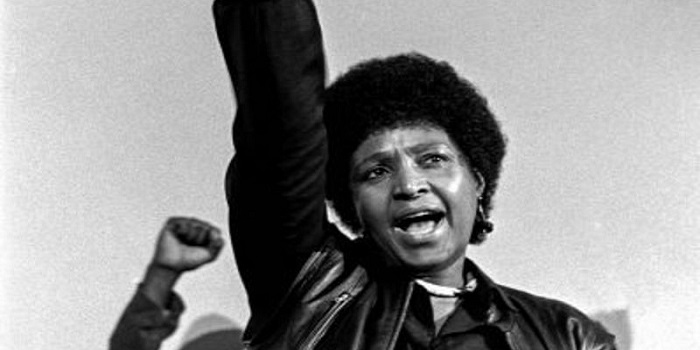A tribute to the late Winnie Madikizela Mandela by Ibrahim Kangwa Chibwe
This is how I came to know Winnie Mandela. At some school in central Zambia, our school teacher would walk into class and shouts, “Morning class, open your social studies text books and go to chapter 6. Today we are learning about freedom and liberation.”
Soon names like Winnie Mandela, Oliver Tambo and Steve Biko were popular in our class. The teaching was more illustrative, with accompanying pictures depicting the brutal scenes of the apartheid policy in black townships.
We were young kids then, still in primary school aged about ten or eleven. The Zambian government had, to date, incorporated subjects like Civics and Social Studies that enabled us to get close to the outside world.
Back home, I would ask my mother.
“Who is Winnie Mandela?”
“He is Nelson Mandela’s wife,” she replied.
And who is Nelson Mandela?
“He is a freedom fighter in prison in South Africa,” ends the conversation.
As a young child, freedom for me was about playing soccer on the open street. In later years we started to understand and learn about the brutal oppressive system in South Africa that had suppressed and subjugated the large black population under an apartheid system. Winnie Mandela was a textbook example of the struggle for freedom. She was a household name. Everybody loved her, everybody wanted to be like her. That is the Winnie I knew.
But who was Winnie in the eyes of the oppressor?
Winnie was vilified by the western media. Accounts that came out of the Washing Post immediately after her death bears testimony to that.
While her husband was languishing in prison, Winnie defied the odds and stood tall and represented millions of South Africans in the cause for justice and equality. She remained defiant and continued fighting till her death.
Having suffered under the oppressive apartheid system, Winnie knew the road to equality was far as long as a large section of the population still remained poor. And that was her weakness.
Did the ANC fail Winnie?
Yes they did. The ANC alienated Ma Winnie, and this was partly due to her standing in society. During the struggle, people were united under one cause, and that immediately vanished when the black majority tasted power. Patronage kicked in and the comradeship was lost.
The ANC has failed to come up with a comprehensive plan to document all the achievements of the movement, which is a detriment to the young generation.
In this view, I think Winnie will always stand out.
Rest In Power, Ma Winnie.
Views expressed are that of the author.






 WhatsApp us
WhatsApp us 

